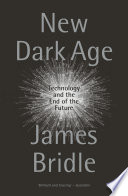

The book posits that while we are inundated with data, the ability to interpret and utilize this data effectively is limited. The author argues that data alone does not equate to knowledge or wisdom. In an age where data is often treated as the ultimate truth, the nuances of human experience and the complexities of societal issues are often overlooked. This idea emphasizes the need for critical thinking and contextual understanding in the age of information overload, suggesting that reliance on data without understanding its implications can lead to misguided decisions and a superficial grasp of reality.
Continue readingThe book explores the growing dependency on technology and how it shapes our lives, often in ways we do not fully understand. This dependency can lead to a loss of autonomy as individuals and societies become increasingly reliant on algorithms and digital systems. The author discusses the implications of this reliance, including the erosion of privacy, the manipulation of information, and the potential for technology to dictate social norms. This idea serves as a cautionary tale about the dangers of unchecked technological advancement and the importance of maintaining agency in a tech-driven world.
Continue readingThe author critiques the notion of progress that is often associated with technological advancements. While technology has brought about significant changes, the book argues that these changes do not necessarily equate to societal improvement. Issues such as inequality, environmental degradation, and social disconnection are exacerbated by technological advancements rather than alleviated. This idea challenges readers to reconsider what progress truly means and to evaluate the broader consequences of technological development on society.
Continue readingThe book emphasizes the importance of understanding cultural and historical contexts when examining technology and its impact. The author argues that technology does not exist in a vacuum; it is influenced by and influences cultural norms, values, and historical events. This idea encourages readers to look beyond the surface of technological innovations and to consider the deeper implications of these technologies on human behavior and societal structures. It calls for a more holistic approach to understanding technology's role in shaping the future.
Continue readingIn a world dominated by data and algorithms, the book highlights the critical role of imagination and creativity in shaping the future. The author argues that while technology can enhance our capabilities, it is human creativity that drives innovation and meaningful change. This idea serves as a reminder of the importance of nurturing creativity and imagination in education and professional environments, advocating for a balance between technological proficiency and creative thinking.
Continue readingThe book delves into the ethical considerations surrounding technology and its implementation in society. It raises questions about who benefits from technological advancements and who is left behind. The author discusses the moral responsibilities of technologists and policymakers in ensuring that technology serves the greater good rather than exacerbating existing inequalities. This idea urges readers to engage in ethical discourse about technology and to consider the societal implications of their technological choices.
Continue readingThe book concludes with a reflection on the future of society in light of technological advancements. The author speculates on potential scenarios, both optimistic and pessimistic, and emphasizes the need for proactive engagement with technology to shape a future that aligns with human values and aspirations. This idea encourages readers to envision a future where technology is harnessed for positive change, advocating for a collaborative approach to technological development that prioritizes human well-being.
Continue readingThe reading time for New Dark Age depends on the reader's pace. However, this concise book summary covers the 7 key ideas from New Dark Age, allowing you to quickly understand the main concepts, insights, and practical applications in around 21 min.
New Dark Age is definitely worth reading. The book covers essential topics including The Limitations of Data, Technological Dependency, The Illusion of Progress, providing practical insights and actionable advice. Whether you read the full book or our concise summary, New Dark Age delivers valuable knowledge that can help you improve your understanding and apply these concepts in your personal or professional life.
New Dark Age was written by James Bridle.
If you enjoyed New Dark Age by James Bridle and want to explore similar topics or deepen your understanding, we highly recommend these related book summaries:
These books cover related themes, complementary concepts, and will help you build upon the knowledge gained from New Dark Age. Each of these summaries provides concise insights that can further enhance your understanding and practical application of the ideas presented in New Dark Age.